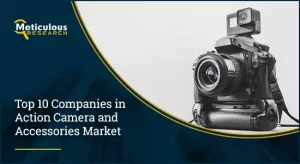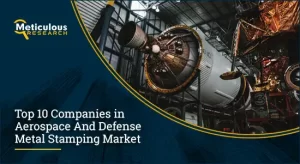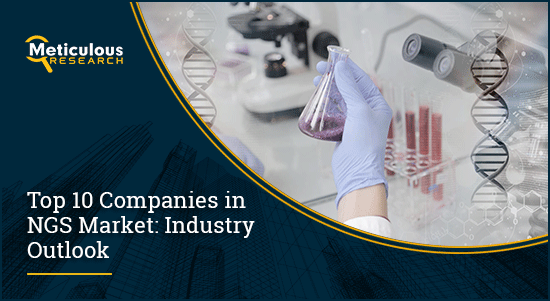
The NGS Market is projected to reach $42.7 billion by 2031 at a CAGR of 15.7% from 2024 to 2031, according to Meticulous Research®. Next-generation sequencing is a method of determining the nucleotide sequence of DNA or RNA. The sequenced nucleotide provides the most comprehensive knowledge of a gene or genome. It is the blueprint that contains the evidence for building an organism, and no understanding of genetic function or evolution could be complete without obtaining this information.
The growth of the NGS market is driven by rising cancer prevalence and increasing application of NGS in cancer treatment and research; partnerships between NGS service providers & pharmaceutical companies; growing demand for optimized & streamlined NGS workflows; declining costs of genome sequencing; technological advancements in sequencing procedures and NGS informatics solutions; increasing pharmaceutical R&D expenditures; the surge in genome mapping programs; and improvements in regulatory and reimbursement scenarios for NGS-based diagnostic tests. The increasing applications of NGS, the rising adoption of bioinformatics and genomic data management solutions, collaborations between vendors to develop library preparation protocols, the growing use of bioinformatics and genomic data management solutions for large-scale data analysis and interpretation, the increasing adoption of NGS informatics tools among hospitals and clinical laboratories, and government initiatives supporting large-scale genomic sequencing projects are expected to create growth opportunities for the players operating in the NGS market.
Here are the top 10 companies operating in the Next-generation Sequencing Market
Illumina, Inc. (U.S.)
![]() Incorporated in 1998 and headquartered in California, the U.S., Illumina provides sequencing and array-based solutions for genomic and genetic analysis. The company operates through two reportable segments: Core Illumina and GRAIL. The company provides a wide range of next-generation sequencing solutions used for clinical and research applications.
Incorporated in 1998 and headquartered in California, the U.S., Illumina provides sequencing and array-based solutions for genomic and genetic analysis. The company operates through two reportable segments: Core Illumina and GRAIL. The company provides a wide range of next-generation sequencing solutions used for clinical and research applications.
Illumina provides its products to government laboratories, genomic research centers, academic institutions, hospitals, commercial molecular diagnostics laboratories, and pharmaceutical and consumer genomics companies. The company has manufacturing sites and laboratories in the U.S., Singapore, and the U.K. It distributes its products directly and through distributors to its customers in Australia, New Zealand, Germany, China, France, India, Japan, the Netherlands, and the U.K., among others.
Some of its subsidiaries operating in the next-generation sequencing market are Illumina GmbH (Germany), Illumina Australia Pty. Ltd. (Australia), Illumina U.K., Ltd. (U.K.), Illumina Italy S.r.l. (Italy), Illumina Netherlands B.V. (Netherlands), and Illumina K.K. Japan (Japan).
Thermo Fisher Scientific Inc. (U.S.)
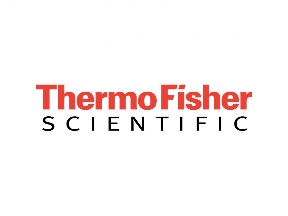 Founded in 1956 and headquartered in Massachusetts, the U.S., Thermo Fisher offers products and services in the pharmaceutical, biotechnology, agricultural, clinical, healthcare, government, and academic sectors. The company operates through four segments: Life Sciences Solutions, Analytical Instruments, Specialty Diagnostics, and Laboratory Products and Biopharma Services.
Founded in 1956 and headquartered in Massachusetts, the U.S., Thermo Fisher offers products and services in the pharmaceutical, biotechnology, agricultural, clinical, healthcare, government, and academic sectors. The company operates through four segments: Life Sciences Solutions, Analytical Instruments, Specialty Diagnostics, and Laboratory Products and Biopharma Services.
The company provides NGS solutions through its Life Sciences Solutions segment. The Life Sciences Solutions segment provides reagents, instruments, and consumables used in biological and medical research, discovery and production of new drugs and vaccines as well as diagnosis of infection and disease. These products and services are used by customers in the pharmaceutical, biotechnology, agricultural, clinical, healthcare, and academic markets. Life Sciences Solutions includes three primary businesses: Biosciences, Genetic Sciences, and Bioproduction.
Thermo Fisher has a geographical presence across North America, Europe, Asia-Pacific, Latin America, and the Middle East & Africa through its subsidiaries, R&D sites, and distribution network. As of December 2023, the company had a headcount of 122,000 employees, of which 61,000 were employed in the Americas, 20,000 in Asia-Pacific, and 41,000 in Europe and the Middle East & Africa.
Some of its major subsidiaries are Thermo Fisher Germany B.V (Netherlands), Thermo Fisher Scientific Inc. (Mexico) LLC (U.S.), Thermo Fisher Scientific Inc. Oy (Finland), Thermo Fisher Scientific Inc. FLC LLC (U.S.), and Thermo Fisher Scientific Inc. Australia Pty Ltd (Australia).
Agilent Technologies, Inc. (U.S.)
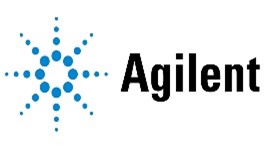 Founded in 1999 and headquartered in California, the U.S., Agilent Technologies provides application-focused solutions to the life sciences, diagnostics, and applied chemical markets. The company operates through three business segments: Life Sciences and Applied Markets, Agilent Cross Lab, and Diagnostics and Genomics. The Diagnostics and Genomics segment offers the next-generation sequencing products. The Diagnostics and Genomics segment includes genomics, nucleic acid contract manufacturing and research & development, pathology, companion diagnostics, reagent partnership, and biomolecular analysis businesses. This segment consists of six areas of activity providing active pharmaceutical ingredients for oligo-based therapeutics and solutions that include reagents, instruments, software, and consumables.
Founded in 1999 and headquartered in California, the U.S., Agilent Technologies provides application-focused solutions to the life sciences, diagnostics, and applied chemical markets. The company operates through three business segments: Life Sciences and Applied Markets, Agilent Cross Lab, and Diagnostics and Genomics. The Diagnostics and Genomics segment offers the next-generation sequencing products. The Diagnostics and Genomics segment includes genomics, nucleic acid contract manufacturing and research & development, pathology, companion diagnostics, reagent partnership, and biomolecular analysis businesses. This segment consists of six areas of activity providing active pharmaceutical ingredients for oligo-based therapeutics and solutions that include reagents, instruments, software, and consumables.
Agilent has a geographical presence in countries including Brazil, Canada, Mexico, Austria, Belgium, Finland, Germany, Ireland, Israel, Netherlands, Spain, Japan, Korea, India, and China, among others. Through its subsidiaries and distribution network, the company serves customers in over 110 countries. The company has R&D and manufacturing sites in California, Colorado, Delaware, Massachusetts, Texas, Vermont, and Washington in the U.S., Australia, China, Denmark, Germany, Italy, Japan, Malaysia, Singapore, and the U.K.
Some of the company’s subsidiaries are Agilent Technologies Canada Inc. (Canada), Agilent Technologies U.K. Limited (U.K.), Agilent Technologies Deutschland GmbH (Germany), Agilent Technologies Company Limited (China), Agilent Technologies Japan, Ltd (Japan), Agilent Technologies Brazil Ltda. (Brazil), and Agilent Technologies France SAS (France).
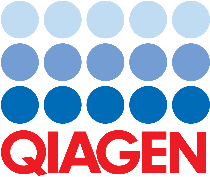 Founded in 1984 and headquartered in Venlo, the Netherlands, QIAGEN N.V. provides sample and assay technologies for molecular diagnostics, applied testing, and academic and pharmaceutical research. The company offers its products through only one reportable segment and provides them in two major markets: Molecular Diagnostics and Life Sciences.
Founded in 1984 and headquartered in Venlo, the Netherlands, QIAGEN N.V. provides sample and assay technologies for molecular diagnostics, applied testing, and academic and pharmaceutical research. The company offers its products through only one reportable segment and provides them in two major markets: Molecular Diagnostics and Life Sciences.
The company offers its NGS sequencing solutions through the Genomics/NGS segment. Qiagen’s product offerings include diagnostics solutions, PCR products, genomic or NGS products, consumables, and instruments for sample technologies. Moreover, the company offers more than 500 core products consisting of instruments, kits, bioinformatics solutions, and a wide range of NGS services, such as RNA sequencing services, DNA sequencing services, whole genome amplification services, and RNA isolation services.
The company markets products in more than 130 countries across the globe. It has facilities in the U.S., China, Germany, Poland, the Philippines, Denmark, Romania, Spain, the U.K., and other countries. Furthermore, the company’s sales are handled by distributors and subsidiaries. Some of the company’s key subsidiaries are QiagenAB (Sweden), Qiagen AG (Sweden), Qiagen GmbH (Germany), QIAGEN LLC (U.S.), QIAGEN China (Shanghai) Co. Ltd. (China), QIAGEN Inc. (Canada), QIAGEN K.K. (Japan), and QIAGEN S.r.l. (Italy).
Danaher Corporation (U.S.)
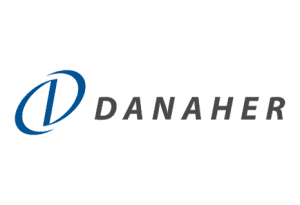 Founded in 1984 and headquartered in Washington, D.C., the U.S., Danaher Corporation designs, manufactures, and markets medical, professional, industrial, and commercial products and services for various end users. The company is comprised of more than 15 operating companies and operates through four reportable business segments: Life Sciences, Biotechnology, Diagnostics, and Environmental and Applied Solutions.
Founded in 1984 and headquartered in Washington, D.C., the U.S., Danaher Corporation designs, manufactures, and markets medical, professional, industrial, and commercial products and services for various end users. The company is comprised of more than 15 operating companies and operates through four reportable business segments: Life Sciences, Biotechnology, Diagnostics, and Environmental and Applied Solutions.
The Life Sciences segment offers products for the next-generation sequencing market. The company has research and development, manufacturing, sales, distribution, service, and administrative facilities in more than 60 countries across the globe. Danaher Corporation sells its products through direct sales personnel and independent distributors.
Some of Danaher Corporation’s subsidiaries offering NGS products are Beckman Coulter, Inc. (U.S.) and Integrated DNA Technologies, Inc. (U.S.). Some of its other subsidiaries are Beckman Coulter Biomedical Ltd. (Ireland), Beckman Coulter Commercial Enterprise Co., Ltd. (China), Beckman Coulter France S.A.S. (France), Beckman Coulter GmbH (Germany), Beckman Coulter United Kingdom (U.K.), Beckman Coulter India Pvt Ltd (India), Beckman Coulter Australia Pty. Ltd. (Australia), Beckman Coulter Korea Ltd. (South Korea).
Meticulous Research in its latest publication on Next-Generation Sequencing (NGS) Market: Industry Outlook has predicted the growth of 15.7% during the forecast year 2024-2031.
F. Hoffmann-La Roche Ltd (Switzerland)
 Founded in 1896 and headquartered in Basel, Switzerland, Roche is a healthcare company that develops, manufactures, and markets a wide range of healthcare solutions. The company operates through two reportable divisions, namely, Pharmaceuticals and Diagnostics, of which the Diagnostics division operates in the next-generation sequencing market.
Founded in 1896 and headquartered in Basel, Switzerland, Roche is a healthcare company that develops, manufactures, and markets a wide range of healthcare solutions. The company operates through two reportable divisions, namely, Pharmaceuticals and Diagnostics, of which the Diagnostics division operates in the next-generation sequencing market.
The Diagnostics division is engaged in developing a wide range of diagnostic products and solutions, such as in vitro diagnostics, molecular diagnostics, clinical chemistry and immunoassays, point-of-care testing, tissue diagnostics, patient self-testing, next-generation sequencing, laboratory automation and IT, and decision-support solutions.
Roche has a geographical presence across the U.S., Germany, Switzerland, Japan, China, India, New Zealand, Australia, Latin America, and Africa. Furthermore, the company has 23 manufacturing sites and 29 research and development sites worldwide. Some of its subsidiaries are Roche Diagnostics (U.S.), Roche Diagnostics GmbH (Germany), Roche Diagnostics France SAS (France), Roche Diagnostics S.p.A. (Italy), Roche Diagnostics International AG (Switzerland), Roche Diagnostics Limited (U.K.), Roche Diagnostics (Shanghai) Ltd. (China), and Roche Diagnostics K.K (Japan).
Tecan Group Ltd. (Switzerland)
![]() Founded in 1980 and headquartered in Männedorf, Switzerland, Tecan Group Ltd. develops, produces, markets, and supports automated laboratory instruments and solutions for applications in biopharmaceuticals, forensics, and clinical diagnostics. The company provides its products to pharmaceutical and biotechnology companies, university research departments, and diagnostic laboratories. It operates through two reportable business segments: Life Sciences Business and Partnering Business. Through its Life Sciences Business segment, the company provides products in next-generation sequencing solutions.
Founded in 1980 and headquartered in Männedorf, Switzerland, Tecan Group Ltd. develops, produces, markets, and supports automated laboratory instruments and solutions for applications in biopharmaceuticals, forensics, and clinical diagnostics. The company provides its products to pharmaceutical and biotechnology companies, university research departments, and diagnostic laboratories. It operates through two reportable business segments: Life Sciences Business and Partnering Business. Through its Life Sciences Business segment, the company provides products in next-generation sequencing solutions.
Tecan Group’s Life Sciences Business has a wide geographic presence and distributes its products through its market organizations and distributors in more than 70 countries globally. Some of the company’s subsidiaries are Tecan Genomics, Inc. (U.S.), Tecan France S.A.S. (France), Tecan Italia S.r.l. (Italy), Tecan UK Ltd. (U.K.), Tecan Japan Co., Ltd. (Japan), and Tecan Australia Pty Ltd (Australia).
Eurofins Scientific SE (Luxembourg)
![]() Founded in 1987 and headquartered in Luxembourg City, Luxembourg, Eurofins Scientific SE is a life science company that offers a range of analytical testing services across different industries. The company offers its products in five key areas: Clinical Diagnostics, Environmental Testing, Food and Feed Testing, Consumer Product Testing, and Bio-Pharmaceutical Services.
Founded in 1987 and headquartered in Luxembourg City, Luxembourg, Eurofins Scientific SE is a life science company that offers a range of analytical testing services across different industries. The company offers its products in five key areas: Clinical Diagnostics, Environmental Testing, Food and Feed Testing, Consumer Product Testing, and Bio-Pharmaceutical Services.
The company operates in the next-generation sequencing services market through the BioPharmaceutical Services and Clinical Diagnostics business area. Eurofins’ next-generation sequencing laboratories operate under good laboratory practice (GLP) as well as ISO 17025 accreditations. The company has a geographical presence in over 62 countries, including Brazil, Colombia, Costa Rica, Morocco, Tunisia, Finland, and Mauritius. It offers NGS services through its subsidiaries Diatherix (U.S.), Eurofins Viracor, Inc. (U.S.), and Eurofins BioPharma Product Testing Australia Pty Ltd. (Australia), among others.
Beijing Genomics Institute (BGI) (China)
![]() Founded in 1999 and headquartered in Shenzhen, China, BGI provides a wide range of integrated genomic sequencing and proteomic solutions and services for pharmaceutical companies, medical institutions, healthcare providers, and other organizations.
Founded in 1999 and headquartered in Shenzhen, China, BGI provides a wide range of integrated genomic sequencing and proteomic solutions and services for pharmaceutical companies, medical institutions, healthcare providers, and other organizations.
BGI offers its solutions and services in over 100 countries globally. Most of its sequencing solutions are performed on the DNBSEQ NGS platform. The company has offices in Denmark, the U.S., China, and Japan and has a direct presence in France, Germany, Canada, Australia, and UAE, among others. As of 2021, the company had 6,000 employees globally.
BGI is owned by China’s state-owned enterprises of State Development and Investment Corporation and China Merchants Group.
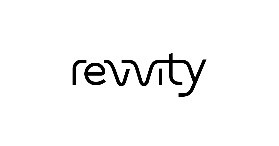 Founded in 2023 and headquartered in Massachusetts, the U.S., Revvity offers products, solutions, and services for the life sciences and diagnostics markets. It operates through two reportable business segments: Life Sciences and Diagnostics. In August 2022, the company completed the divestiture of its Applied, Food, and Enterprise Services businesses to private equity firm New Mountain Capital from PerkinElmer, Inc. (U.S.).
Founded in 2023 and headquartered in Massachusetts, the U.S., Revvity offers products, solutions, and services for the life sciences and diagnostics markets. It operates through two reportable business segments: Life Sciences and Diagnostics. In August 2022, the company completed the divestiture of its Applied, Food, and Enterprise Services businesses to private equity firm New Mountain Capital from PerkinElmer, Inc. (U.S.).
The company has a network of sales and marketing channels and service personnel in over 40 countries and sells its products and services in over 160 countries.
Some of its subsidiaries are Revvity Global Diagnostics, Inc (U.S). Revvity Biomed (Shanghai) Co., Ltd., Revvity SAS (France), Revvity Germany Diagnostics GmbH (Germany), Revvity Healthcare (India) Pvt Ltd., Revvity Japan Co. Ltd., Revvity Korea, Ltd., Nexcelom Bioscience Ltd. (U.K.)
Authoritative Research on the Next-Generation Sequencing (NGS) Market: Industry Outlook – Global Opportunity Analysis and Industry Forecast (2024-2031)
Need more information? Meticulous Research®’s new report covers each of these companies in much more detail, providing analysis on the following:
- Recent financial performance
- Key products
- Significant company strategies
- Partnerships and acquisitions
The Comprehensive report provides global market size estimates, market share analysis, revenue numbers, and coverage of key issues and trends.


